Published Jan 18, 2014
Remembering "Datalore" 26 Years Later
Remembering "Datalore" 26 Years Later
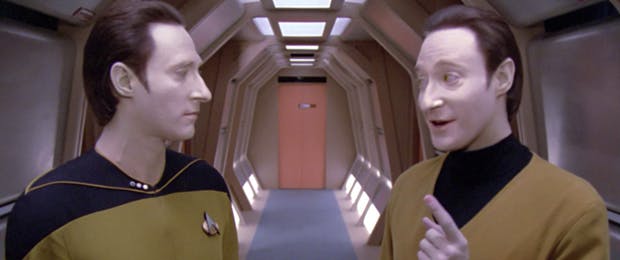
Do you remember where you were on January 18, 1988? If you were a Star Trek: The Next Generation fan at the time, odds are you were watching the debut of “Datalore,” season one’s 13th episode. It was a vital TNG hour, and for several reasons. It, of course, introduced the character of Lore, Data’s “evil twin,” with Brent Spiner doing double duty as both Data and Lore. It was the last episode written by Star Trek creator Gene Roddenberry. It was the fourth of 13 TNG episodes directed by Rob Bowman and is considered both one of his best efforts and one of the show’s most memorable outings.
StarTrek.com caught up with Spiner and Bowman recently for separate “Datalore”-specific interviews. Spiner provided some intriguing insight, but cited the passage of time – and the fact that he may never have actually seen the finished episode – for any foggy memories. Bowman, who was scouting a location for an upcoming episode of Castle when we caught up with him, was almost savant-like in offering details, anecdotes and context. Here’s what they had to say beginning with Brent Spiner.
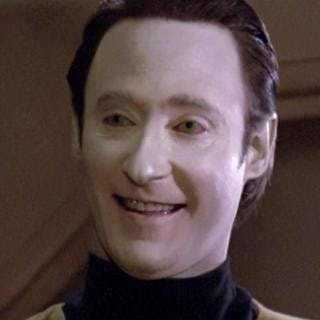
How important to you and the evolution of Data was the introduction of Lore?
SPINER: I enjoyed the opportunity to play a different character. I always enjoyed playing Lore because it gave me the chance to cut loose a bit. I would've loved to do a Lore episode where he didn't even come into contact with the Enterprise and Data. Just to see what the heck he was doing when he wasn't wreaking havoc on his brother. What went on in an ordinary day in the life of Lore?
The "evil twin" idea for this episode was reportedly your suggestion. Had you taken the idea to Gene Roddenberry? To Rick Berman? And was it in response to a script draft you didn't like, or just an idea you'd wanted to see realized for a while?
SPINER: The idea wasn't mine. Maybe someone is confusing that with my desire to play Dr. Soong after the character was already written. They originally thought of Keye Luke for the role, but I talked Rick into using me instead. Lore was completely Gene's idea as far as I remember. And, being that it was 26 years ago, I'm not sure of anything.
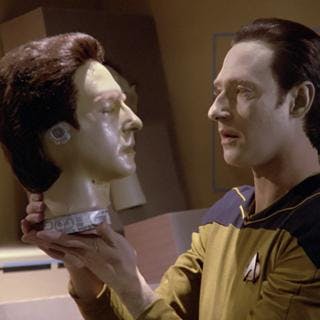
What do you remember most about the challenges of playing both roles, especially when you were supposed to be interacting with yourself?
SPINER: Really the challenges were mostly technical, (such as) trying to imagine where the other "me" was in the frame. But, as I've said before, it gave me the opportunity to work with my favorite actor.
What kind of input did you get from Rob Bowman?
SPINER: Rob was very helpful in every way. He's a very creative and skilled director and he came to us with loads of enthusiasm. That was very surprising for a director who still had grape punch around his mouth. I mean, after all, he was about nine when he directed this episode. I joke, but he was our youngest director. We called him, "the kid.”
When was the last time you saw the episode, and how well do you feel it holds up?
SPINER: I honestly can't be sure I ever watched the episode. Maybe I did. But, it was 26 years ago. And, I'd have to watch it now to tell you whether it holds up. And I intend to. Right after I watch all of Breaking Bad.
Rob, you were not supposed to direct this episode. At the time, how disappointed were you that you didn't wind up helming "The Big Goodbye"?
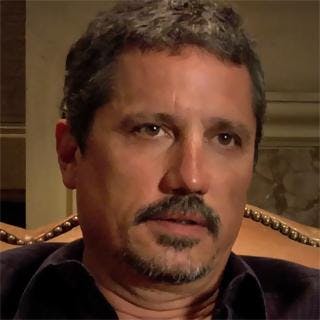
BOWMAN: I wanted “The Big Goodbye” because Rick had told me that world was coming up in a script and I was a very big fan of the genre as a young film student. And it was such a departure that I thought it would be fun. I thought it would have something to add and offer to the series, but they told me that it wasn’t ready, but that “Datalore” was. So I went the other way with it. I went to Brent and I said, “Look, they’re giving this to us, and it feels like we’re getting second-tier material, but let’s show ‘em.” I remember making a pact with Brent that we were going to make it a great show, that we were going to try very hard and not deliver less than the very best we could. I know that’s what everybody was expecting anyway. And, by the way, I thought Joe Scanlon did a fantastic with “The Big Goodbye.” I was very impressed, me being a young director, with a lot of the things he did there. I thought, “Wow, that’s really sophisticated and smart, and I don’t know if I would have done that.” So, in the end, both shows ended up with the right guy. And, luckily, “Datalore” has hung around as one of the favorites.
It’s why we’re on the phone now. How far along was the script by the time you got on the episode?
BOWMAN: It was a work in progress. And, if memory serves, it was too long, but what it didn’t have in it was the attitude that Brent was going to bring to Lore, which added a lot of dynamics to it. That was one of the concerns with the episode, would it be compelling and interesting and dramatic and dynamic? The first time I saw Brent play Lore, I knew we had it. I asked him during prep, while he was shooting the show before it, if he had a “Lore face.” He showed me his Lore face and I sort of put that in my pocket, thinking, “Oh, nobody knows how great this is going to be.”
The TNG Companion says that the "evil twin" idea was Brent’s. Brent, however, said it was Gene Roddenberry’s. Do you know where the idea came from?
BOWMAN: No. I don’t know.
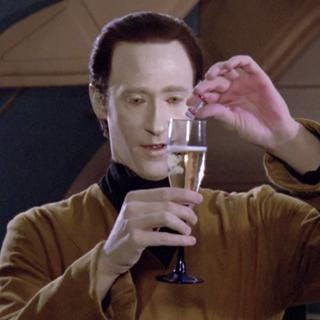
The evil twin device has been used a million times in films and shows. So, in what ways did you think you could use that would be fresh and new?
BOWMAN: Data is very reliant, reliable, dependable and predictable, and he also operates within very strict parameters, particularly behavioral parameters. So when you have somebody (like Lore) who is behaviorally unlocked and unrestricted, and petulant and very enigmatic, you don’t know what’s going to happen. So you’ve got the complete polar opposites, predictability and reliability and completely unpredictability and unreliability, untrustworthy. And, all embodied within the same external visage, it’s very creepy to see some version of Data behave almost willfully antagonistic, which is not something we’d ever expect from Data. Lore had none of Data’s very positive character attributes. He was completely narcissistic, which is a dangerous attribute and not at all like Data. So it created a lot of conflict.
Give us an anecdote about Brent differentiating Data and Lore.
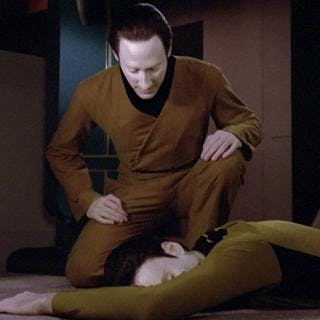
BOWMAN: You had to ask, even when Lore is being sincere, can you trust him? Does he have an agenda? Can you trust his word? No, you never could. And I remember there was a shot at the end of some scene where somebody winds up on the floor. The last shot of the scene is a slight Dutch angle where Lore stands up, in close-up. I was looking for just a scent of wickedness to convey to the audience, a privileged point of view that would not be to the other characters in the scene as they were walking out the room, that Lore was up to something, again, narcissistically. I ended up using a piece (of footage shot) right after I said “Cut,” because Brent had just finished having so much fun playing Lore that his glee, relishing what he had done, was in his eyes. That’s the shot that’s in the show. That was after “Cut.” You could see that it was Brent thinking, “That was a lot of fun to play,” and it was so much different than the very rigid, compliant Data.
This was the last episode Roddenberry was credited with having a hand in writing. Did you get any input from him?
BOWMAN: No, certainly not that I recall. My very first episode, earlier that season, which was “Where No Man Has Gone Before,” he came down on my second or third day and was very pleased with what he was seeing. From that point on I didn’t see him too much for the rest of the show. They’d go find him in his office now and then, but he certainly left me alone, which I took as a compliment.
At the end of the day, in what ways did the introduction of Lore help develop/humanize Data?
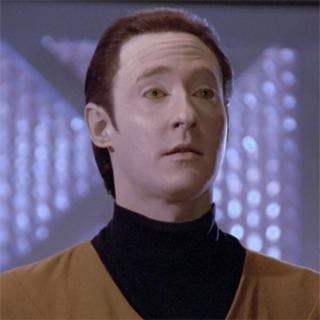
BOWMAN: Well, because of Lore’s unpredictability and narcissism – as I think back to my own thoughts at the time – it created a question in Data about who he was. And the question was, “Is there any of that in me?” To me, it almost brought a degree of increased humility into Data because he knew a part of him was in Lore and vice versa. The fear of becoming that kind of person, instead of being pristine and perfect, which I believe Data thought he was before, without him being egotistical about it, gave him something to think about. He might have some internal flaws that hadn’t surfaced yet or some behavioral characteristics genetically, and I think that was a humbling thing for Data -- and for Brent deciding who the two were. It was interesting in that Data didn’t want to be like Lore, but he loved his brother in spite of his flaws. That’s what I remember of thinking about in terms of how Lore affects Data from this point forward.
How does the episode hold up all this time later?
BOWMAN: I haven’t seen it in a long time. Brent’s performance will hold up forever.
Last question: Do you have a photographic memory? If someone 26 years from now comes to you from the official Castle site and asks you to remember details from season four, episode 16, do you think you’ll be able to do it?
BOWMAN: (laughs). I might.

